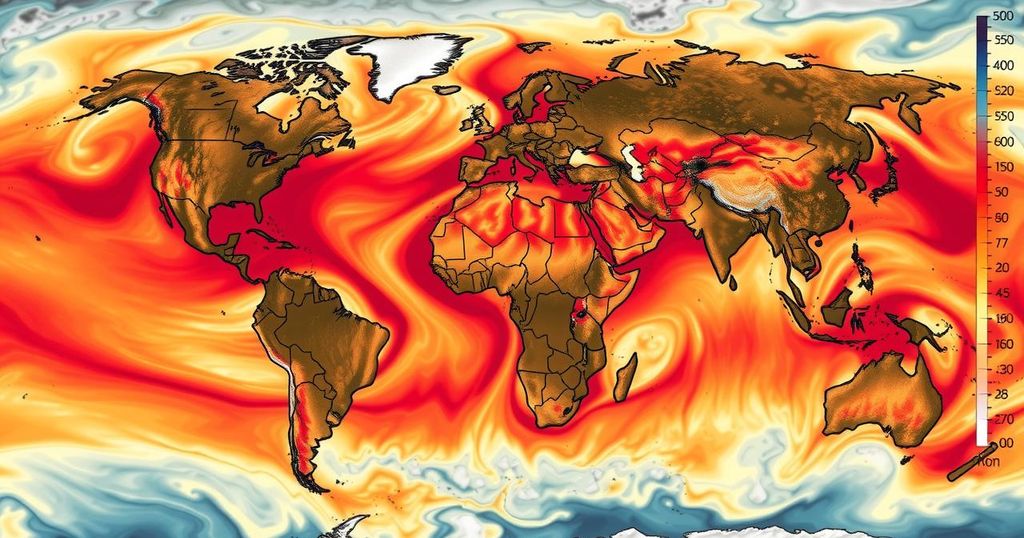The year 2024 witnessed a striking increase in dangerous heat days—averaging 41 more per person compared to non-climate-change scenarios—due to human-caused climate change. This resulted in record-breaking temperatures and a multitude of extreme weather events that displaced millions and led to significant loss of life. Urgent action is essential to confront the escalating climate crisis, as the world approaches critical warming thresholds.
In 2024, the world experienced an average of 41 additional days of perilous heat, a direct result of anthropogenic climate change, according to a study conducted by World Weather Attribution and Climate Central researchers. This year may well go down as the hottest on record, characterized by a series of extreme weather events that claimed thousands of lives and disrupted the lives of millions globally. Critical findings indicate that climate change substantially intensified numerous severe weather phenomena, underscoring an urgent global crisis that necessitates immediate action to mitigate further impacts.
The scientists’ research illustrates that extreme temperatures affected diverse regions, from sweltering Northern California to parched areas in West Africa, where the risk to vulnerable populations intensified. The analysis, while not yet peer-reviewed, utilized established peer-reviewed methods to compare 2024 temperature data with expected figures in a hypothetical scenario absent of climate change influences. The stark reality is illuminated by the fact that some locales encountered over 150 days of extreme heat this year.
This alarming trend insists on a serious consideration of the implications laid out by scientists, who assert that heat-related deaths are frequently underreported. Climate experts, including Friederike Otto of Imperial College and Kristina Dahl of Climate Central, have articulated the necessity for improved communication regarding the dangers posed by heatwaves. The urgency is compounded by the looming threat of surpassing the Paris Agreement’s critical 1.5 degrees Celsius warming cap, as evidenced by the multitude of catastrophic events linked to climate change that have unfolded this year.
El Niño, a natural climate cycle, compounded the situation but was found to be less influential than climate change itself in exacerbating extreme weather patterns. The assessments reveal that unless there are concerted efforts to reduce greenhouse gas emissions, extreme weather occurrences will continue to escalate, inflicting grave humanitarian and economic costs. However, experts maintain that proactive steps can be taken to lessen the impacts of climate change through adaptation strategies tailored to individual countries’ needs.
Overall, 2024 has served as a critical warning about the imminent dangers associated with climate change, demanding urgent global attention and concerted action to avert catastrophic outcomes and safeguard vulnerable populations worldwide.
The report stems from a collaborative effort by scientists analyzing global climate patterns, emphasizing the escalating effects of human-induced climate change in 2024. Following a year marked by unprecedented heat and severe weather incidents, the data reveals alarming trends linking climate change to increased frequency and intensity of extreme weather events, sparking widespread concern among climatologists and policymakers. This comprehensive analysis aligns with ongoing discussions surrounding climate action and the necessity of adhering to international agreements aimed at curtailing global warming effects.
In conclusion, the findings from 2024 highlight the devastating impact of climate change on global weather patterns, resulting in unprecedented heat and severe weather events. With over 41 additional days of extreme heat and concerning death tolls, the need for immediate action has never been clearer. As we approach critical temperature thresholds stipulated by international agreements, proactive strategies must be implemented to mitigate these effects and protect vulnerable societies around the world.
Original Source: www.nationalobserver.com






